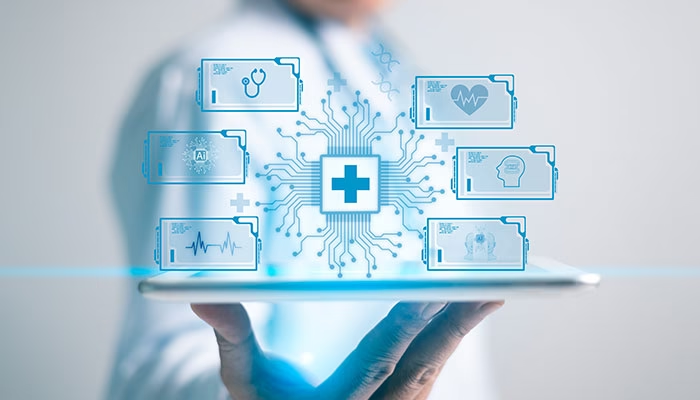Design, Development and Regulatory Compliance for Medical Devices and SaMD

As medical technologies evolve, the foundational principles of design control remain critical to ensuring product safety, effectiveness, and regulatory compliance. However, today’s development landscape is increasingly complex—blending traditional hardware engineering with software, connectivity, and AI-driven innovation.
This course is designed to reinforce the core structure of design controls while expanding into the regulatory and technical challenges posed by modern digital health technologies. It equips professionals with the tools to confidently manage both established and emerging requirements across the full product lifecycle.
Course description
This training program offers a comprehensive overview of the design, development, and regulatory requirements for both traditional medical devices and modern digital health technologies. It is designed to help professionals navigate the evolving landscape of EU MDR, IVDR, and FDA regulations while integrating best practices for both hardware and software development.
Day 1 focuses on the structured application of design controls for medical devices, including risk management, verification and validation, and design transfer. Day 2 shifts to the regulatory and technical considerations for software, including Software as a medical device (SaMD), cloud-based systems, artificial intelligence (AI), and large language models (LLMs).
Participants will leave with a clear understanding of how to align product development with global regulatory expectations, whether working on electromechanical devices, embedded systems, or standalone digital health applications.
Course outline
- Foundations of design controls – introduction to design requirements and expectations in EU MDR, planning for hardware and integrated systems.
- User Needs & Design inputs – Capturing user needs and translating them into design inputs – traceability and documentation
- Verification and Validation – how to determine that we made the product right and the we made the right product
- Risk management – short introduction in risk management and how it is connected to the design and development process
- Design reviews and design changes – A documented, planned, and systematic evaluation of a medical device design at various stages to ensure it meets requirements and to identify any issues early and how to handle changes made after design freeze
- Design transfer and documentation – What to think about when moving to production and why and how the documentation supports us in our work
- Software Lifecycle – SW classification, SW development lifecycle from user needs to design transfer, documentation deliverables
- Risk Management for SW – specific considerations for risk analysis, risk evaluation, and risk control for software,
- Cybersecurity – Cybersecurity requirements and data integrity, interoperability and post market software updates
- AI, Machine Learning, and LLMs in Medical Devices – AI/ML design, verification and validation
Learning objectives
- Describe the key regulatory frameworks and standards for both hardware and software medical devices.
- Structure and document design control activities more effectively, ensuring alignment with ISO 13485 and FDA 21 CFR 820.30 for both hardware and software products.
- Integrate risk management seamlessly into the design and development process, using ISO 14971 as a practical tool rather than a checkbox exercise.
- Distinguish and apply appropriate regulatory pathways for hardware devices, embedded systems, and standalone software, including AI and cloud-based technologies.
- Develop compliant technical documentation that supports CE marking and FDA submissions, tailored to the specific nature of the product (hardware, software, or hybrid).
- Collaborate more effectively across disciplines (engineering, regulatory, quality, and clinical) by understanding the full product lifecycle and regulatory expectations.
- Anticipate emerging challenges in cybersecurity, AI/ML validation, and cloud deployment with a proactive, risk-based mindset.
Who should attend
This course is ideal for professionals involved in the development, regulation, and quality assurance of medical devices and digital health technologies, including:
- R&D Engineers and Product Developers working on physical medical devices, embedded systems, or software-based solutions
- Regulatory Affairs Specialists responsible for CE marking, FDA submissions, and global market access
- Quality Assurance Professionals ensuring compliance with ISO 13485, ISO 14971, IEC 62304, and related standards
- Project Managers and Product Owners overseeing cross-functional development teams in MedTech
- Cybersecurity and Cloud Architects supporting connected medical devices and cloud-hosted health software
- Clinical and Usability Experts involved in validation, human factors, and clinical evaluation
- Consultants and Auditors working with medical device manufacturers or digital health startups
Prerequisites
- You should have basic knowledge of quality systems, e.g. by participating in one of our basic courses or have equivalent knowledge of the company’s internal quality assurance programs.
- You should have at least 6-12 months experience working in the medical device/IVD field or related life science sectors.
- No background in software is required.
#5250

